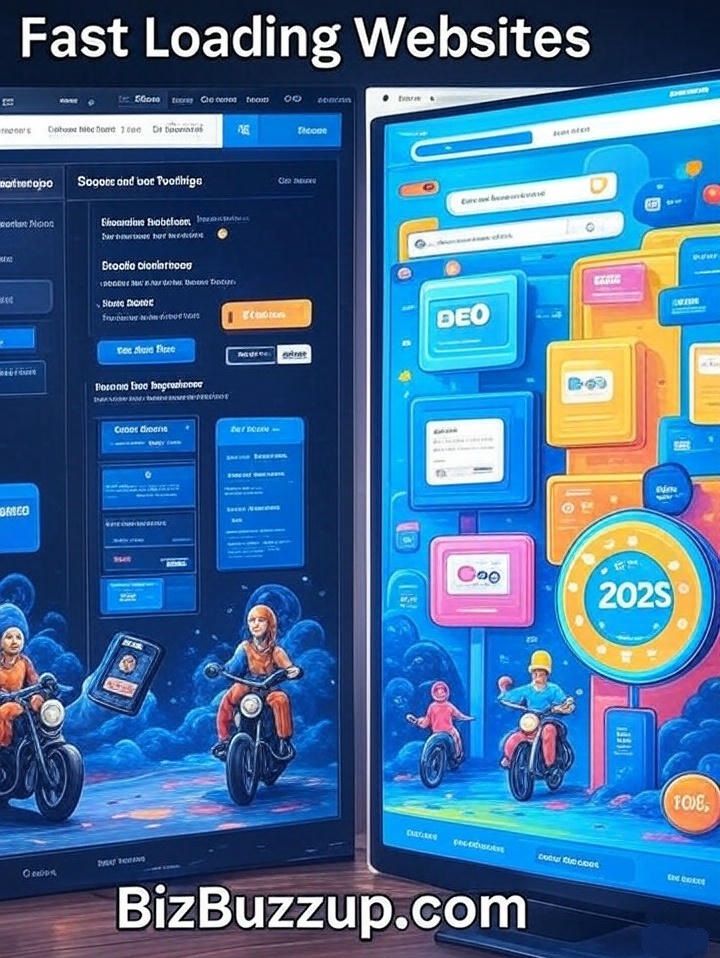Affiliate marketing is a way to earn money by promoting products or services from other companies. When someone buys through your special link, you get a part of the sale. This guide will help you start your own affiliate marketing business and make money from it.
Key Takeaways
- Affiliate marketing allows you to earn money by promoting other people’s products.
- You can start without spending any money upfront, just invest your time and effort.
- Choosing a specific niche helps you target a more focused audience.
- There are many platforms to promote your affiliate links, like blogs, YouTube, and social media.
- Creating valuable content is crucial for attracting and keeping your audience.
- Building trust with your audience can lead to higher conversions.
- Joining reputable affiliate networks can provide access to many affiliate programs.
- Tracking and analyzing your performance helps you improve your strategies.
1-Understanding Affiliate Marketing
What is Affiliate Marketing?
Affiliate marketing is a way to earn money by promoting other people’s products or services. When someone buys something through your special link, you get a commission. It’s like being a salesperson for the internet. You don’t need to create your own products; you just help sell others’ products and get paid for it.
How Does Affiliate Marketing Work?
Affiliate marketing involves three main players:
- Seller and Product Creators: These are the people or companies that create the product.
- Affiliates or Advertisers: These are the people who promote the product.
- Consumers: These are the people who buy the product.
Here’s a simple breakdown of the process:
- You find a product you like and join its affiliate program.
- You get a special link to the product.
- You share this link on your blog, social media, or other platforms.
- When someone clicks your link and buys the product, you earn a commission.
Key Players in Affiliate Marketing
- Seller: The creator of the product, which can be a big company or a small business.
- Affiliate: The person who promotes the product and earns a commission.
- Consumer: The person who buys the product through the affiliate’s link.
Benefits of Affiliate Marketing
- Low Startup Costs: You don’t need to create a product or hold inventory.
- Flexibility: You can work from anywhere and choose products you believe in.
- Passive Income: Once your links are out there, you can earn money even while you sleep.
Common Misconceptions About Affiliate Marketing
- It’s a Get-Rich-Quick Scheme: It takes time and effort to build a successful affiliate marketing business.
- You Need a Huge Following: Even small, engaged audiences can be very profitable.
- It’s Only for Bloggers: You can use social media, YouTube, and other platforms too.
Affiliate Marketing vs. Other Marketing Strategies
Affiliate marketing is different from other marketing strategies because you don’t need to create your own product. Instead, you focus on promoting existing products and earning a commission. This makes it a low-risk way to start making money online.
2-Choosing Your Niche

Importance of Selecting a Niche
Choosing the right niche is crucial for your success in affiliate marketing. A well-chosen niche helps you stand out and become an authority in that area. It also makes it easier to target your audience and create relevant content.
How to Identify a Profitable Niche
To find a profitable niche, ask yourself these questions:
- What am I passionate about?
- Is there a demand for this niche?
- Can I solve problems within this niche?
- Are there affiliate programs available?
Popular Niches in Affiliate Marketing
Some popular niches include:
- Health and Fitness
- Personal Finance
- Technology
- Travel
- Lifestyle
Niche Research Tools and Techniques
Use these tools to research your niche:
- Google Trends
- Keyword Planner
- Social Media Insights
- Competitor Analysis
Balancing Passion and Profit
While it’s important to choose a niche you’re passionate about, it should also be profitable. Finding the right balance between passion and profit can lead to long-term success.
Case Studies of Successful Niches
Many successful affiliate marketers have found their niche by combining their interests with market demand. For example, a fitness enthusiast might focus on promoting workout gear and supplements.
3-Selecting the Right Affiliate Programs

Types of Affiliate Programs
Affiliate programs come in various types, each with its own benefits and drawbacks. Here are the three main types:
- High-paying, low-volume: These programs offer high commissions but have fewer buyers. For example, software products often fall into this category.
- Low-paying, high-volume: These programs have lower commissions but appeal to a broader audience. Amazon Associates is a popular example.
- High-paying, high-volume: These programs offer high commissions and have a large audience. Credit card affiliate programs are a good example, but they often require more expertise.
Top Affiliate Networks to Join
Joining a reputable affiliate network can simplify the process of finding and managing affiliate programs. Some of the top networks include:
Evaluating Commission Structures
When choosing an affiliate program, it’s crucial to evaluate the commission structure. Look for programs that offer a fair commission rate for your efforts. Some programs may offer up to 20% commissions per sale. Additionally, consider the Earnings Per Click (EPC) rate, which indicates the average earnings per 100 clicks.
Understanding Cookie Duration
Cookie duration refers to the length of time a cookie remains active on a user’s browser after they click your affiliate link. Longer cookie durations increase the chances of earning a commission. For example, a 30-day cookie duration is generally better than a 24-hour one.
Finding High-Converting Offers
To maximize your earnings, focus on finding high-converting offers. These are products or services that have a high likelihood of being purchased by your audience. Research and test different offers to see which ones perform best.
Avoiding Scams and Low-Quality Programs
Not all affiliate programs are created equal. Be cautious of programs that seem too good to be true. Stick to reputable networks and do your research to avoid scams and low-quality programs. Look for reviews and testimonials from other affiliates to gauge the program’s reliability.
Selecting the right affiliate programs is crucial for your success. Take the time to research and choose programs that align with your niche and audience.
4-Creating Valuable Content
Content Types That Work Well
Creating valuable content is key to successful affiliate marketing. Here are some content types that work well:
- Tutorials: Step-by-step guides that show how to use a product or service.
- Q&As: Answering common questions related to your niche.
- Product Reviews: Detailed reviews of products you are promoting.
- How-Tos: Instructions on how to achieve a specific task using a product.
- Tips and Tricks: Useful advice related to your niche.
SEO Best Practices for Affiliate Marketing
To ensure your content reaches a wider audience, follow these SEO best practices:
- Keyword Research: Identify and use relevant keywords in your content.
- Quality Content: Create high-quality, informative content that provides value.
- On-Page SEO: Optimize your titles, headers, and meta descriptions.
- Backlinks: Build backlinks from reputable sites to improve your site’s authority.
- Mobile Optimization: Ensure your site is mobile-friendly.
Writing Product Reviews
Writing effective product reviews can boost your affiliate sales. Here are some tips:
- Be Honest: Provide an honest assessment of the product’s pros and cons.
- Use Personal Experience: Share your personal experience with the product.
- Include Images: Use images to show the product in use.
- Add a Call-to-Action: Encourage readers to purchase the product through your affiliate link.
Creating Tutorials and How-Tos
Tutorials and how-tos are great for engaging your audience. Follow these steps:
- Choose a Relevant Topic: Pick a topic that is relevant to your audience.
- Break Down Steps: Break down the process into easy-to-follow steps.
- Use Visuals: Include images or videos to illustrate each step.
- Provide Value: Ensure the tutorial provides real value to your audience.
Leveraging User-Generated Content
User-generated content can enhance your credibility. Here’s how to leverage it:
- Encourage Reviews: Ask your audience to leave reviews and testimonials.
- Share User Content: Share content created by your users on your platform.
- Create Contests: Run contests to encourage user-generated content.
- Engage with Users: Respond to user comments and feedback.
Content Planning and Scheduling
Planning and scheduling your content ensures consistency. Here are some tips:
- Create a Content Calendar: Plan your content in advance using a calendar.
- Set Deadlines: Set deadlines for each piece of content to stay on track.
- Batch Content Creation: Create multiple pieces of content in one go to save time.
- Monitor Performance: Track the performance of your content and adjust your strategy accordingly.
Consistency is key in content creation. Regularly publishing valuable content helps build trust and authority in your niche.
5-Building and Growing Your Audience

Understanding Your Target Audience
To build a loyal audience, you first need to understand who they are. Identify their needs, preferences, and pain points. This will help you create content that resonates with them.
Effective Audience Engagement Strategies
Engage with your audience regularly. Respond to comments, ask for feedback, and create interactive content like polls and Q&A sessions. This builds a sense of community and trust.
Utilizing Social Media Platforms
Social media is a powerful tool for reaching a wider audience. Share your content on platforms like Facebook, Instagram, and Twitter. Use relevant hashtags and collaborate with influencers to increase your reach.
Building an Email List
An email list is a valuable asset. Offer incentives like free downloads or exclusive content to encourage sign-ups. Regularly send newsletters with updates, promotions, and valuable information.
Collaborating with Influencers
Partnering with influencers can help you reach a larger audience. Choose influencers who align with your niche and have a genuine connection with their followers.
Analyzing Audience Feedback
Pay attention to the feedback you receive from your audience. Use it to improve your content and strategies. Regularly review comments, messages, and survey results to understand what your audience likes and dislikes.
Building and growing your audience takes time and effort, but the rewards are worth it. Stay consistent and always prioritize your audience’s needs.
6-Driving Traffic to Your Affiliate Links
Organic Traffic Strategies
Organic traffic is free and can be very effective. SEO (Search Engine Optimization) is key here. By optimizing your content for search engines, you can attract visitors who are already interested in your niche. Here are some basic steps:
- Research keywords that your target audience is searching for.
- Create high-quality content around those keywords.
- Ensure your website is easy for search engines to crawl and index.
- Build backlinks from reputable sites to boost your rankings.
Paid Advertising Options
Paid ads can bring immediate traffic to your site. Options include pay-per-click (PPC) ads on platforms like Google AdWords and social media ads on Facebook or Instagram. While this can be effective, it’s important to monitor your spending to ensure you’re getting a good return on investment.
Social Media Marketing
Social media platforms are great for driving traffic. Share your content on platforms like Facebook, Twitter, and Instagram to reach a wider audience. Engage with your followers by responding to comments and messages to build a community around your brand.
Email Marketing Campaigns
Building an email list allows you to reach your audience directly. Send out newsletters with your latest content, special offers, and affiliate links. Make sure to provide value in your emails to keep your subscribers engaged.
Guest Blogging and Backlinks
Writing guest posts for other blogs in your niche can help you reach a new audience. Include links back to your site to drive traffic. Additionally, focus on building backlinks from reputable sites to improve your SEO and increase organic traffic.
Utilizing Video Content
Video content is highly engaging and can drive a lot of traffic. Create videos related to your niche and share them on platforms like YouTube. Include your affiliate links in the video description and encourage viewers to visit your site for more information.
Remember, driving traffic to your affiliate links is a continuous process. Keep experimenting with different strategies to see what works best for your audience.
7-Optimizing for Conversions
Understanding Conversion Rates
Conversion rates are the percentage of visitors who take a desired action, like making a purchase. Higher conversion rates mean more sales and revenue. To improve these rates, you need to understand your audience and what motivates them.
A/B Testing Your Content
A/B testing involves creating two versions of a webpage or content to see which one performs better. Test different headlines, images, and call-to-actions to find out what works best. This helps you make data-driven decisions to boost conversions.
Improving Call-to-Actions
Your call-to-action (CTA) should be clear and compelling. Use action words like “Buy Now” or “Sign Up Today.” Place CTAs where they are easily visible and make sure they stand out on the page.
Using Analytics to Track Performance
Analytics tools help you track how well your content is performing. Look at metrics like clicks, conversions, and bounce rates. This data can show you what’s working and what needs improvement.
Optimizing Landing Pages
Landing pages are the first thing visitors see when they click on your affiliate links. Make sure these pages are fast, easy to navigate, and relevant to what the visitor is looking for. A well-optimized landing page can significantly increase your conversion rates.
Reducing Bounce Rates
Bounce rate is the percentage of visitors who leave your site after viewing only one page. High bounce rates can hurt your conversions. To reduce bounce rates, make sure your content is engaging and relevant. Use internal links to guide visitors to other parts of your site.
8-Compliance and Legal Considerations
Understanding FTC Guidelines
The Federal Trade Commission (FTC) protects consumers from deceptive marketing practices. As an affiliate marketer, you must disclose your financial relationship with any brands or products you promote. This means telling your audience that you’re getting compensated for promoting the products and always indicating when a link is an affiliate link.
Disclosing Affiliate Relationships
Transparency is key. Clearly and conspicuously disclose your relationship to the retailer. For example, a disclaimer like, “The products I’m going to use in this video were given to me by Company X,” gives your viewers the information they need to make an informed decision.
GDPR and Data Privacy
If you’re targeting audiences in the European Union, you must comply with the General Data Protection Regulation (GDPR). This includes obtaining explicit consent for data collection and providing users with the right to access and delete their data.
Intellectual Property Rights
Respect intellectual property rights by not using copyrighted material without permission. This includes images, videos, and written content. Always credit the original creator if you use their work.
Avoiding Black Hat Techniques
Black hat techniques like spamming, keyword stuffing, and using misleading links can get you penalized by search engines and banned from affiliate programs. Stick to ethical marketing practices to build long-term success.
Staying Updated with Legal Changes
Laws and regulations can change, so it’s crucial to stay updated. Regularly review legal guidelines and consult with a legal expert to ensure you’re compliant with all current laws.
Following these guidelines not only keeps you compliant but also builds trust with your audience, which is invaluable for long-term success.
9-Tools and Resources for Affiliate Marketers
SEO Tools and Plugins
To succeed in affiliate marketing, you need to optimize your content for search engines. SEO tools and plugins can help you achieve this by providing insights and recommendations. Some popular options include:
- Ahrefs: An all-in-one SEO tool that helps you research keywords, audit your site, and analyze competitors.
- Rank Math: A WordPress plugin that ensures your pages have optimal on-page SEO.
- Google Search Console: Helps you find and fix technical errors, submit sitemaps, and check your Core Web Vitals.
Email Marketing Software
Email marketing is a powerful way to reach your audience directly. Here are some tools to help you manage your email campaigns:
- Mailchimp: A user-friendly platform for creating and managing email campaigns.
- ConvertKit: Designed for creators, it offers automation features to help you grow your email list.
- AWeber: Provides a range of templates and tools to create effective email marketing campaigns.
Analytics and Tracking Tools
Understanding your audience’s behavior is crucial for optimizing your affiliate marketing efforts. Analytics and tracking tools can provide valuable data:
- Google Analytics: Offers detailed insights into your website traffic and user behavior.
- ClickMeter: Tracks clicks on your affiliate links and provides conversion data.
- Hotjar: Helps you understand how users interact with your site through heatmaps and session recordings.
Content Creation Tools
Creating high-quality content is essential for engaging your audience. These tools can help you produce and manage your content:
- Canva: A graphic design tool that makes it easy to create visuals for your blog and social media.
- Grammarly: An AI-powered writing assistant that helps you write clear and error-free content.
- WordPress: A popular content management system for building and managing your website.
Social Media Management Tools
Social media is a great way to promote your affiliate links and engage with your audience. Here are some tools to help you manage your social media presence:
- Hootsuite: Allows you to schedule and manage posts across multiple social media platforms.
- Buffer: Helps you plan and schedule your social media content in advance.
- Sprout Social: Provides analytics and engagement tools to help you grow your social media following.
Affiliate Marketing Courses and Books
Continuous learning is key to staying ahead in affiliate marketing. Here are some resources to help you improve your skills:
- Affiliate Marketing for Dummies: A comprehensive guide for beginners.
- Making Sense of Affiliate Marketing: An online course that covers the basics and advanced strategies.
- The Complete Guide to Affiliate Marketing on the Web: A book that offers practical tips and strategies for success.
Investing in the right tools and resources can make a significant difference in your affiliate marketing journey. Choose the ones that best fit your needs and goals.
10-Monetizing Different Platforms
Blogging and Affiliate Marketing
Blogging is a popular way to start with affiliate marketing. By creating a niche blog, you can attract a specific audience interested in your content. Authenticity and audience engagement are key. If you can connect with your readers, they are more likely to trust your recommendations and make purchases through your affiliate links.
YouTube and Video Content
If you enjoy making videos, YouTube is a great platform for affiliate marketing. You can create product reviews, tutorials, and other engaging content. To join YouTube’s affiliate program, you need to be part of the YouTube Partner Program, be based in the US, and have over 20,000 subscribers. Tagging products in your videos can help viewers shop while they watch.
Social Media Influencing
Social media platforms like Instagram and TikTok are perfect for affiliate marketing. Influencers can share affiliate links in their posts and stories. The key is to create content that resonates with your followers. Start on a platform you are comfortable with to create authentic and engaging content.
Podcasting and Affiliate Marketing
Podcasts are another effective way to promote affiliate products. You can mention products during your episodes and include affiliate links in the show notes. Building a loyal listener base is crucial for success in podcasting.
Email Newsletters
Email marketing remains a powerful tool for affiliate marketers. By building an email list, you can send newsletters with affiliate links to your subscribers. Personalized and valuable content can increase the chances of conversions.
Mobile Apps and Affiliate Marketing
Creating a mobile app can also be a lucrative way to monetize affiliate marketing. You can integrate affiliate links within the app, offering users a seamless shopping experience. Focus on user experience to keep your audience engaged and encourage them to make purchases.
11-Scaling Your Affiliate Marketing Business

When to Scale Your Business
Knowing when to scale your affiliate marketing business is crucial. Look for consistent revenue growth and a stable audience base. If you’re seeing steady traffic and conversions, it might be time to expand.
Hiring Virtual Assistants
As your business grows, tasks can become overwhelming. Hiring virtual assistants can help manage routine tasks like content creation, social media management, and email marketing. This allows you to focus on strategy and growth.
Automating Tasks
Automation tools can save you time and effort. Use tools for scheduling posts, sending emails, and tracking performance. This not only increases efficiency but also ensures consistency in your marketing efforts.
Expanding to New Niches
Once you’ve established a strong presence in one niche, consider branching out. Research new niches that align with your interests and expertise. This diversification can open up new revenue streams and reduce risk.
Diversifying Income Streams
Relying on a single income source can be risky. Diversify by exploring different affiliate programs, creating your own products, or offering consulting services. This can provide more financial stability and growth opportunities.
Investing in Advanced Training
Continuous learning is key to staying competitive. Invest in advanced training courses, attend webinars, and read industry blogs. This will help you stay updated with the latest trends and strategies in affiliate marketing.
Scaling your affiliate marketing business requires careful planning and execution. By diversifying your income streams and investing in continuous learning, you can achieve sustainable growth and long-term success.
12-Case Studies and Success Stories
Successful Affiliate Marketers to Follow
Following successful affiliate marketers can provide valuable insights and inspiration. Here are a few notable names:
- Pat Flynn: Known for his blog Smart Passive Income, Pat shares his journey and strategies openly.
- Michelle Schroeder-Gardner: Creator of Making Sense of Cents, Michelle has earned millions through affiliate marketing.
- John Chow: A blogger who turned his site into a six-figure income stream through affiliate marketing.
Case Study: From Zero to Hero
In this case study, we’ll explore how a beginner went from zero to earning thousands per month in affiliate commissions. The key steps included:
- Choosing a Profitable Niche: The individual selected a niche with high demand and low competition.
- Creating Quality Content: Focused on producing valuable and engaging content for the target audience.
- Building an Email List: Used lead magnets to grow an email list and nurture relationships with subscribers.
- Leveraging Social Media: Utilized platforms like Instagram and Pinterest to drive traffic to their site.
- Continuous Learning and Optimization: Regularly analyzed performance and made necessary adjustments.
Lessons Learned from Failures
Failures are part of the journey. Here are some lessons learned from common mistakes:
- Not Researching the Niche: Jumping into a niche without proper research can lead to wasted time and effort.
- Ignoring SEO: Neglecting search engine optimization can result in low organic traffic.
- Overlooking Audience Engagement: Failing to engage with the audience can reduce trust and conversions.
Innovative Strategies That Worked
Some affiliate marketers have used innovative strategies to achieve success. Here are a few examples:
- Webinars: Hosting webinars to provide value and promote affiliate products effectively.
- Comparison Posts: Creating detailed comparison posts to help readers make informed decisions.
- Resource Pages: Developing resource pages that list useful tools and products, generating passive income.
Interviews with Top Affiliates
Interviews with top affiliates can offer a wealth of knowledge. Here are some key takeaways from recent interviews:
- Focus on Value: Successful affiliates emphasize providing value to their audience above all else.
- Be Authentic: Authenticity and honesty in recommendations build trust and credibility.
- Diversify Income Streams: Relying on multiple income streams can provide stability and growth.
Real-World Examples of High Earnings
Here are some real-world examples of high earnings in affiliate marketing:
| Affiliate Marketer | Monthly Earnings | Main Strategy |
|---|---|---|
| Pat Flynn | $100,000+ | Blogging and Podcasting |
| Michelle Schroeder-Gardner | $50,000+ | Blogging and Email Marketing |
| John Chow | $40,000+ | Blogging and Social Media |
Affiliate marketing success stories show that with dedication, the right strategies, and continuous learning, anyone can achieve significant earnings.
13-Common Challenges and How to Overcome Them
Dealing with Low Traffic
One of the biggest hurdles in affiliate marketing is getting enough traffic to your site. Without traffic, you can’t make sales. To overcome this, focus on SEO best practices, create high-quality content, and leverage social media platforms to drive visitors to your site.
Overcoming Content Creation Blocks
Creating content consistently can be tough. To keep the ideas flowing, maintain a content calendar, and don’t hesitate to repurpose old content. Sometimes, taking a short break can also help you come back with fresh ideas.
Managing Time Effectively
Balancing affiliate marketing with other responsibilities can be challenging. Use tools like Trello or Asana to organize your tasks. Prioritize your activities and set specific goals to stay on track.
Handling Negative Feedback
Negative feedback is inevitable. The key is to handle it professionally. Respond politely, address the issues raised, and use the feedback to improve your offerings. Remember, constructive criticism can be a valuable learning tool.
Staying Motivated
It’s easy to lose motivation, especially when results are slow. Set small, achievable goals and celebrate your progress. Surround yourself with a supportive community and keep reminding yourself why you started.
Adapting to Market Changes
The affiliate marketing landscape is always evolving. Stay updated with industry news, be flexible, and be willing to adapt your strategies. Continuous learning and experimentation are crucial for long-term success.
Remember, every challenge is an opportunity to learn and grow. Stay persistent and keep pushing forward.
14-Future Trends in Affiliate Marketing
Emerging Niches
New niches are always popping up in affiliate marketing. Staying ahead of the curve can give you a big advantage. Look for trends in technology, health, and lifestyle to find the next big thing.
Impact of AI and Automation
AI and automation are changing the game. Tools that automate tasks like content creation and data analysis can save you time and boost your efficiency. However, building trust with your audience remains crucial, as AI can’t replicate your unique voice and personality.
Voice Search and Affiliate Marketing
With the rise of smart speakers and voice assistants, voice search is becoming more common. Optimize your content for voice search to capture this growing audience. Think about how people speak their queries, which is often different from how they type them.
Influence of Social Commerce
Social media platforms are making it easier to shop directly from posts. This trend, known as social commerce, is a goldmine for affiliate marketers. Use platforms like Instagram and TikTok to showcase products and include your affiliate links.
Sustainability and Ethical Marketing
Consumers are becoming more conscious of sustainability and ethical practices. Promoting eco-friendly and ethically-made products can not only boost your sales but also build long-term trust with your audience.
Predictions for the Next Decade
The next decade will likely see even more integration of technology in affiliate marketing. Expect more advanced AI tools, increased use of video content, and a greater focus on personalized marketing. Staying adaptable and continuously learning will be key to your success.
The future of affiliate marketing is bright, but it requires staying updated with trends and being willing to adapt. Embrace new technologies and always keep your audience’s needs in mind.
15-Financial Management for Affiliate Marketers
Budgeting for Marketing Expenses
Creating a budget is crucial for managing your marketing expenses. Allocate funds wisely to ensure you have enough for advertising, tools, and other resources. Track your spending to avoid overspending and adjust your budget as needed.
Tracking Income and Expenses
Keep a detailed record of all your income and expenses. Use spreadsheets or financial software to monitor your cash flow. This helps you understand your profitability and make informed decisions.
Tax Considerations
Understand the tax implications of your affiliate marketing income. Set aside a portion of your earnings for taxes and consult with a tax professional to ensure compliance with local laws.
Reinvesting Profits
Reinvesting a portion of your profits back into your business can help you grow. Consider spending on better tools, advertising, or hiring help to scale your operations.
Building an Emergency Fund
Set aside money for unexpected expenses. An emergency fund can help you manage financial setbacks without disrupting your business.
Financial Tools and Software
Utilize financial tools and software to streamline your financial management. Tools like QuickBooks, FreshBooks, or even simple spreadsheets can help you keep track of your finances efficiently.
Good financial management is the backbone of a successful affiliate marketing business. By keeping a close eye on your income and expenses, you can make smarter decisions and ensure long-term success.
16-Networking and Community Building

Joining Affiliate Marketing Forums
Affiliate marketing forums are great places to learn and share. You can ask questions, get advice, and find out what works for others. Some popular forums include Warrior Forum and AffiliateFix. Being active in these communities can help you stay updated and connected.
Attending Industry Conferences
Industry conferences are perfect for meeting other marketers and learning from experts. Events like Affiliate Summit and Affiliate World bring together top minds in the field. You can attend workshops, listen to keynote speakers, and network with peers.
Participating in Webinars
Webinars are online seminars where you can learn about specific topics. Many are free and hosted by industry leaders. They offer a chance to gain new skills and ask questions in real-time. Look for webinars on platforms like GoToWebinar or Zoom.
Building Relationships with Other Affiliates
Connecting with other affiliates can be very beneficial. You can share tips, collaborate on projects, and support each other. Use social media platforms like LinkedIn or Facebook groups to find and connect with fellow marketers.
Leveraging LinkedIn for Networking
LinkedIn is a powerful tool for professional networking. Create a strong profile, join relevant groups, and engage with content. Building a network on LinkedIn can open doors to new opportunities and partnerships.
Creating a Support System
Having a support system is crucial for long-term success. This can include mentors, peers, or online communities. They can offer guidance, motivation, and help you stay accountable. Consider joining mastermind groups or finding a mentor to support your journey.
Building a strong network and community around you can significantly boost your affiliate marketing efforts. It provides support, knowledge, and opportunities that you might not find on your own.
17-Improving Your Affiliate Marketing Skills
Continuous Learning and Development
To stay ahead in affiliate marketing, continuous learning is essential. The industry evolves quickly, so you need to keep up with the latest trends and strategies. Consider setting aside time each week to read articles, watch webinars, or take online courses.
Staying Updated with Industry News
Subscribe to industry newsletters and follow key influencers on social media. This will help you stay informed about new tools, techniques, and changes in the market. Being updated can give you a competitive edge.
Taking Online Courses
Online courses can provide in-depth knowledge on specific topics. Platforms like Udemy, Coursera, and LinkedIn Learning offer courses on SEO, content marketing, and more. Investing in these courses can pay off in the long run.
Reading Industry Blogs and Books
Blogs and books are great resources for learning from experts. Some popular blogs include Neil Patel’s blog, Smart Passive Income, and Authority Hacker. Books like “Affiliate Marketing for Dummies” can also provide valuable insights.
Practicing New Techniques
Don’t just learn—practice! Implement new strategies and techniques to see what works best for your audience. Experimenting can lead to discovering effective methods that you might not find in any course or book.
Seeking Mentorship
A mentor can provide personalized advice and guidance. Look for experienced affiliate marketers who are willing to share their knowledge. Joining affiliate marketing forums or attending industry conferences can help you find potential mentors.
Improving your skills is a continuous journey. Stay curious, keep learning, and don’t be afraid to try new things. Your efforts will pay off in the long run.
18-Evaluating Your Affiliate Marketing Performance
Setting Realistic Goals
Setting realistic goals is the first step in evaluating your affiliate marketing performance. Clear and achievable goals help you stay focused and measure your progress. Start by defining what success looks like for you, whether it’s a specific income target, a certain number of clicks, or a particular conversion rate.
Key Performance Indicators (KPIs)
To effectively measure your performance, you need to track Key Performance Indicators (KPIs). Some essential KPIs for affiliate marketing include:
- Click-through rate (CTR)
- Conversion rate
- Earnings per click (EPC)
- Return on investment (ROI)
Regular Performance Reviews
Conducting regular performance reviews is crucial. Set aside time each month to analyze your metrics and see how well you’re meeting your goals. This will help you identify what’s working and what needs improvement.
Adjusting Strategies Based on Data
Use the data from your performance reviews to adjust your strategies. If a particular campaign isn’t performing well, try changing your approach. Experiment with different types of content, promotional methods, or even different affiliate programs.
Celebrating Milestones
Don’t forget to celebrate your milestones. Reaching a goal, no matter how small, is an achievement worth acknowledging. Celebrating these wins can keep you motivated and focused on your long-term objectives.
Learning from Mistakes
Mistakes are inevitable, but they are also valuable learning opportunities. When something doesn’t go as planned, take the time to understand why. Use this knowledge to avoid similar pitfalls in the future and improve your overall strategy.
Regularly evaluating your performance helps you stay on track and make informed decisions. By setting realistic goals, tracking KPIs, and learning from your mistakes, you can continually improve your affiliate marketing efforts.
19-Ethical Considerations in Affiliate Marketing
Promoting Products You Believe In
When you promote products, make sure they are ones you genuinely believe in. Your audience can tell if you’re just in it for the money. This trust is crucial for long-term success.
Transparency with Your Audience
Always be transparent with your audience. Let them know you are earning a commission from the products you promote. This honesty builds trust and complies with legal guidelines.
Avoiding Misleading Claims
Never make false claims about a product. Stick to the facts and share your honest opinion. Misleading your audience can damage your reputation and lead to legal issues.
Respecting Consumer Privacy
Respect the privacy of your audience. Do not share or misuse their personal information. Always follow data protection laws like GDPR.
Sustainable Marketing Practices
Consider promoting products that are sustainable and ethically made. This not only helps the planet but also appeals to a growing number of eco-conscious consumers.
Building Long-Term Trust
Focus on building long-term trust with your audience. This means being consistent, honest, and reliable in all your marketing efforts.
Ethical marketing is not just about following the rules; it’s about building a relationship of trust with your audience. This trust is the foundation of a successful affiliate marketing business.
20-Leveraging Data and Analytics
Importance of Data in Affiliate Marketing
Data is the backbone of successful affiliate marketing. By analyzing data, you can understand what works and what doesn’t. This helps in making informed decisions to improve your strategies.
Tools for Data Collection and Analysis
To gather and analyze data, you need the right tools. Here are some popular ones:
- Google Analytics
- SEMrush
- Ahrefs
- ClickMeter
These tools help you track clicks, conversions, and other key metrics.
Interpreting Data to Make Decisions
Once you have the data, the next step is to interpret it. Look for patterns and trends. For example, if a particular product review is getting more clicks, it might be worth focusing more on similar content.
Tracking User Behavior
Understanding how users interact with your content is crucial. Use heatmaps and session recordings to see where users click and how they navigate your site. This information can help you optimize your layout and content.
Measuring ROI
Return on Investment (ROI) is a key metric in affiliate marketing. Calculate your ROI by comparing the money you spend on marketing to the revenue you generate. A positive ROI means your strategies are working.
Using Data to Improve Strategies
Data should be used to continually refine your marketing strategies. If a certain type of content is performing well, create more of it. If a particular platform is driving more traffic, focus your efforts there.
Regularly reviewing your data can give you a clear picture of your performance and help you make necessary adjustments. This ongoing process is essential for long-term success in affiliate marketing.
Conclusion
Affiliate marketing offers a fantastic opportunity to earn money online with minimal upfront costs. By choosing a niche you are passionate about, creating valuable content, and building a loyal audience, you can turn your efforts into a steady stream of passive income. Remember, success in affiliate marketing doesn’t happen overnight. It requires dedication, consistency, and a willingness to learn and adapt. So, take the first step today and start your affiliate marketing journey. With time and effort, you can achieve the freedom and flexibility to work from anywhere and enjoy the benefits of a successful online business.
Frequently Asked Questions
What is affiliate marketing?
Affiliate marketing is when you promote someone else’s product and earn a commission for each sale made through your unique link.
How can I start affiliate marketing as a beginner?
To start, pick a niche you are interested in, choose a platform like a blog or YouTube, and join affiliate programs related to your niche.
Do I need a lot of money to start affiliate marketing?
No, you can start affiliate marketing with little to no money by using free platforms like social media or YouTube to promote your links.
What are the top affiliate networks for 2024?
The top affiliate networks include Affiliate Future, AvantLink, CJ (Commission Junction), ClickBank, and FlexOffers.
How can I earn $100 a day with affiliate marketing?
You can earn $100 a day by promoting multiple affiliate programs and consistently creating valuable content that engages your audience.
What types of content work well for affiliate marketing?
Product reviews, tutorials, how-to guides, and listicles are types of content that work well for affiliate marketing.
How do I choose a profitable niche?
Choose a niche that interests you and has a demand. You can use tools like Google Trends to see what people are searching for.
What is cookie duration in affiliate marketing?
Cookie duration is the length of time a tracking cookie stays on a user’s browser. It determines how long you can earn a commission after someone clicks your link.
How do I avoid scams in affiliate marketing?
Research the affiliate program and read reviews. Stick to well-known affiliate networks to avoid scams.
Is it important to disclose affiliate relationships?
Yes, it’s important to be transparent with your audience and disclose that you may earn a commission from purchases made through your links.
What tools can help me with affiliate marketing?
Tools like Google Analytics, SEO plugins, and email marketing software can help you track performance and grow your affiliate marketing business.
How can I drive traffic to my affiliate links?
You can drive traffic through SEO, social media marketing, email campaigns, and guest blogging.





















Pingback: 5 Proven Methods to Make Money Online - BizBuzzup
I truly appreciate your technique of writing a blog. I added it to my bookmark site list and will
# Harvard University: A Legacy of Excellence and
Innovation
## A Brief History of Harvard University
Founded in 1636, **Harvard University** is the oldest
and one of the most prestigious higher education institutions in the United States.
Located in Cambridge, Massachusetts, Harvard has built a global reputation for academic
excellence, groundbreaking research, and influential alumni.
From its humble beginnings as a small college established to educate clergy, it
has evolved into a world-leading university that shapes the future across
various disciplines.
## Harvard’s Impact on Education and Research
Harvard is synonymous with **innovation and intellectual
leadership**. The university boasts:
– **12 degree-granting schools**, including the renowned **Harvard Business School**, **Harvard Law School**, and **Harvard Medical School**.
– **A faculty of world-class scholars**, many of whom are Nobel laureates, Pulitzer
Prize winners, and pioneers in their fields.
– **Cutting-edge research**, with Harvard leading initiatives in artificial intelligence, public health, climate change, and
more.
Harvard’s contribution to research is immense, with billions of dollars allocated to scientific
discoveries and technological advancements each year.
## Notable Alumni: The Leaders of Today and Tomorrow
Harvard has produced some of the **most influential figures** in history, spanning politics, business, entertainment, and science.
Among them are:
– **Barack Obama & John F. Kennedy** – Former U.S.
Presidents
– **Mark Zuckerberg & Bill Gates** – Tech visionaries (though Gates did not graduate)
– **Natalie Portman & Matt Damon** – Hollywood icons
– **Malala Yousafzai** – Nobel Prize-winning activist
The university continues to cultivate future leaders who shape industries and drive global progress.
## Harvard’s Stunning Campus and Iconic Library
Harvard’s campus is a blend of **historical charm and
modern innovation**. With over **200 buildings**, it features:
– The **Harvard Yard**, home to the iconic **John Harvard Statue** (and the famous “three
lies” legend).
– The **Widener Library**, one of the largest university libraries in the world, housing **over 20
million volumes**.
– State-of-the-art research centers, museums, and performing arts venues.
## Harvard Traditions and Student Life
Harvard offers a **rich student experience**, blending academics with vibrant traditions, including:
– **Housing system:** Students live in one of 12 residential
houses, fostering a strong sense of community.
– **Annual Primal Scream:** A unique tradition where students de-stress by running through Harvard
Yard before finals!
– **The Harvard-Yale Game:** A historic football rivalry that unites alumni and students.
With over **450 student organizations**, Harvard students engage in a diverse range
of extracurricular activities, from entrepreneurship to performing arts.
## Harvard’s Global Influence
Beyond academics, Harvard drives change in **global
policy, economics, and technology**. The university’s research
impacts healthcare, sustainability, and artificial intelligence, with partnerships across industries worldwide.
**Harvard’s endowment**, the largest of any university, allows it to
fund scholarships, research, and public initiatives, ensuring a legacy of impact for
generations.
## Conclusion
Harvard University is more than just a school—it’s a **symbol of excellence, innovation, and leadership**.
Its **centuries-old traditions, groundbreaking discoveries,
and transformative education** make it one of the most influential institutions in the
world. Whether through its distinguished alumni, pioneering research, or vibrant student
life, Harvard continues to shape the future
in profound ways.
Would you like to join the ranks of Harvard’s legendary scholars?
The journey starts with a dream—and an application!
https://www.harvard.edu/